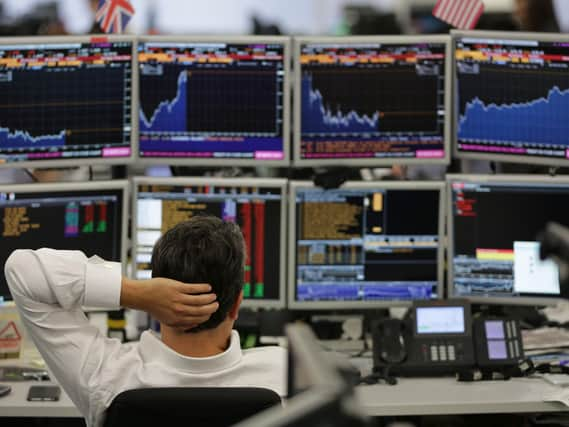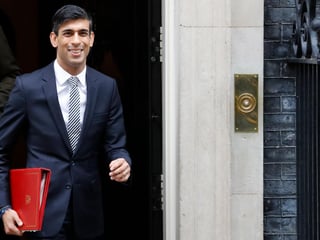Budget 2020: Raft of measures to buoy economy


In his first Budget, Chancellor Rishi Sunak turned on the spending taps with a £30 billion spending package to support the economy as he acknowledged that “for a period it’s going to be tough” with up to a fifth of people off work, supply chains disrupted and consumer spending falling.
The Chancellor said there was “likely to be a temporary disruption” to the economy but insisted his plans would bring “stability and security”.
Advertisement
Hide AdAdvertisement
Hide AdThe scale of the challenge facing the economy was underlined by the OBR in forecasts prepared before the full impact of the virus could be known.
The OBR said “a recession this year is quite possible if the spread of coronavirus causes widespread economic disruption”. Growth is expected to fall to 1.1 per cent in 2020, down from 1.2 per cent last year and dramatically lower than the OBR’s previous estimate of 1.4 per cent – even without the full impact of coronavirus being reflected in the forecast.
Less than a month after becoming Chancellor, Sunak set out £12bn of measures targeted at the impact of the virus, plus £18bn of wider spending plans to stimulate the economy.
Sunak splashed out with funding for public services, citizens and businesses set to suffer as the outbreak becomes more widespread.
Giveaways
The OBR forecasts that to pay for the giveaways, national debt will hit £2 trillion by the end of the Parliament as borrowing jumps from 2.1 per cent of gross domestic product (GDP) in 2019-20 to 2.4 per cent in 2020-21 and 2.8 per cent in 2021-22.
In the next five years, the government plans more than £600bn in capital spend.
Day-to-day spending is also set to grow at an average of 2.8 per cent as the Tories move away from austerity.
Richard Buxton, head of UK equities at Merian Global Investors, said: “The economic growth forecasts, while positive, are something of a disappointment; in my view, there is a high chance that these will prove to have been excessively pessimistic as we look ahead to 2021 and 2022.”
Advertisement
Hide AdAdvertisement
Hide AdSunak said the Budget would boost spending in Scotland by £640 million, adding it would “deliver for the Scottish people”. Combined with decisions taken by Westminster over the last year, this will mean an almost £2bn spending boost for Scotland, according to the UK government.
Liz Cameron, chief executive of the Scottish Chambers of Commerce, said: “Chancellor Rishi Sunak’s budget brings some relief for businesses in the face of coronavirus impact as well as further Barnett consequentials for Scotland.
“We urgently need the Scottish Government to invest any extra funds into business support and boosting the economy, which faces huge challenges in the coming weeks and months.”
She added: “Unless mitigated, the effect of a coronavirus pandemic in the coming weeks – coupled with ongoing uncertainty in other areas such as Brexit – risks heaping long term damage to the Scottish economy, leading to further underperformance in terms of GDP growth and productivity which our businesses and people can ill afford.”
